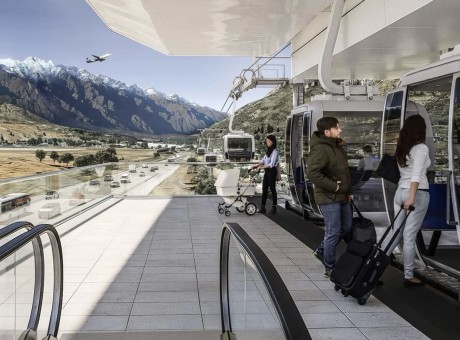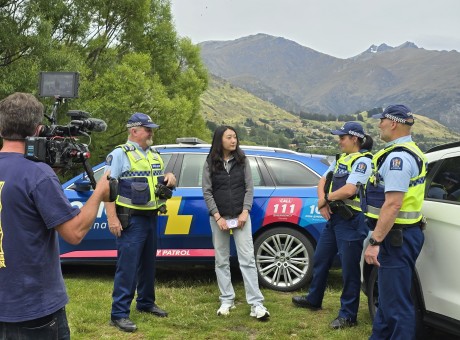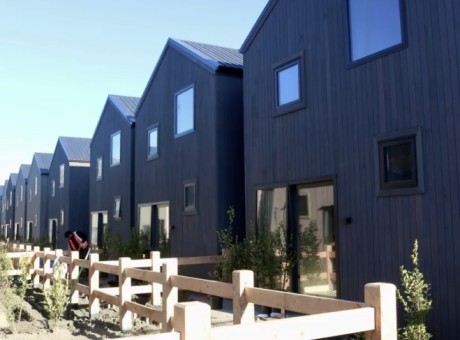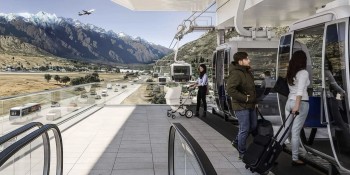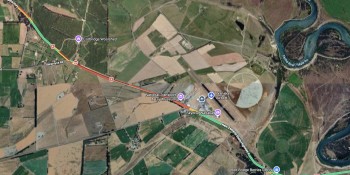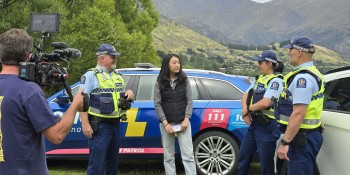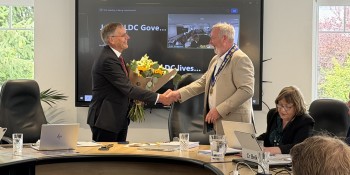Jacqui Dean meets Wanaka midwives: admits "nothing much has changed"
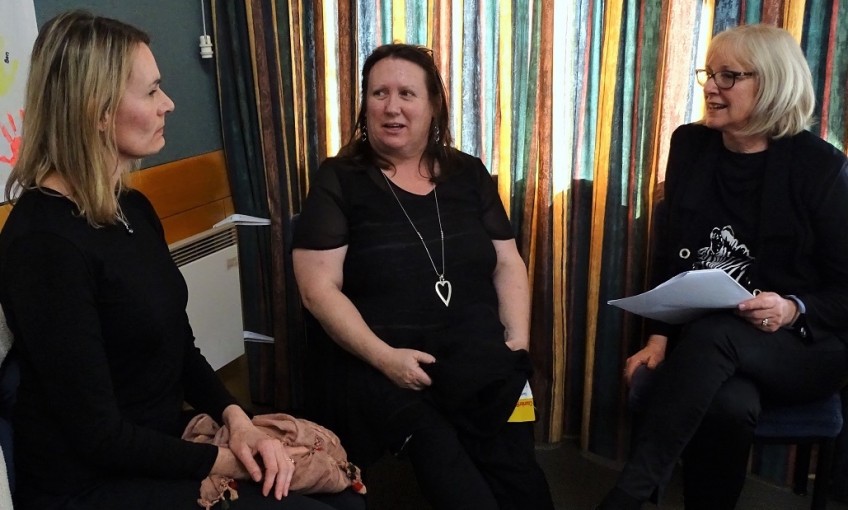
Wanaka’s midwifery crisis looks set to continue with Waitaki MP Jacqui Dean admitting “nothing much has changed” when she met the town’s midwives on Thursday.
The Oamaru-based MP promised the remaining fulltime Wanaka midwives – of which there are now only two, one of whom is a locum – that she would write another letter to Health Minister David Clark emphasising the urgent need for more midwives and a birthing centre in the town.

Jacqui Dean says she hasn't had much luck in improving Wanaka's maternity care services.
Dean said she had already written to Clark and asked questions in parliament about the lack of maternity services in the district, but she “hadn’t had much luck”.
Earlier this year Wanaka midwife Deb Harvey became the last remaining fulltime lead maternity carer in the town when fellow midwife Morgan Weathington withdrew from their midwifery practice.
As a stop gap measure, one fulltime midwife from Tauranga and two parttime midwives, from Auckland and Queenstown, were hired, but their contracts expire at the end of next month.
Harvey said she is feeling “incredibly anxious” about the uncertainty of the locum service.
“I understand that one of the locums has been extended to the end of October but, after that, I have no idea. I cannot be here on my own providing 24/7 maternity care in the most remote rural place in New Zealand without any support,” she said.
The Tauranga midwife, who does not wish to be named, said she would advise women in Wanaka not to have a baby if Harvey became the town’s only midwife after October.
“Things can happen at any stage in a pregnancy, and one person can only take on so much workload before they burn out. Women can go to Dunedin for their midwife but what if they start bleeding at 28 weeks in Wanaka when it’s snowing and the helicopter can’t come, that’s the problem,” she said.

Deb Harvey: anxious about the future, as a midwife in Wanaka.
There are currently 11 former midwives living in Wanaka but Harvey said they have all told her they would not return to work under the current conditions.
“Community midwives will no longer be exploited, working for less than the minimum wage with unsafe working conditions. The funding model has failed and the proof is that I am the only midwife in Wanaka and there will be only one community midwife working in Queenstown from January 2019.
“The (Southern) District Health Board and the Ministry of Health have a responsibility to provide a maternity service, and they need to work together to offer midwives an employment package and encourage them to work here,” she said.
Former Wanaka midwife Morgan Weathington believes the midwives already living in the town must be retained, because the cost of housing and the cost of living is too expensive for other midwives to relocate to Wanaka.
Ms Weathington said she would return to work if she was paid a “fair” wage.
“I really liked my job and if the conditions change where I can work a fair number of hours for a fair pay, I would come back to work but at the moment I think it is exploitative of midwives.

Morgan Weathington: would return to her Wanaka midwifery role if the conditions were "fair".
“The on-call hours are not in the payment scheme, that piece is missing, and as soon as that is addressed then we may have a service,” she said.
A review of maternity services in the Southern District Health Board region was released earlier this month and one of the proposed changes was the introduction of a maternal and child hub in Wanaka.
Although it was accepted the Central Otago/Queenstown Lakes area was growing, the review found “the ability of the region to sustain a primary maternity (or birthing) facility in the area is not clear.”
Instead, the maternal and child hub would provide a “more supportive infrastructure for women and midwives, provide facilities for urgent births, and support primary birthing options at home and at Alexandra’s primary maternity facility Charlotte Jean.”
The SDHB says it's also introducing other initiatives to help support the sustainability of Lead Maternity Care (LMC) midwives, including a funding support package for those working in remote rural locations; technology to enable access to specialist care so women won't need to travel as often; improved leadership support to promote quality and safety and recruitment and retention of midwives, and better communication.
Wanaka mother and spokeswoman for the group “Save Our Wanaka Midwives”, Kristi James, labelled the mother and child hub was a “joke.
“We don’t even have enough midwives to run it now, so how is it going to work?
“I don’t want to be overly negative, but it’s like they have skipped over part one which is the midwives and gone straight to step two,” James said.

Letters from Waitaki MP Jacqui Dean to Health Minister David Clark about Wanaka's dire midwifery situation appear to be falling on deaf ears.
The Save Our Wanaka Midwives group set up a Facebook page earlier this year to inform the community about the midwife crisis.
James said mothers have posted comments saying they are now worried about having a baby in Wanaka.
“We need the (midwife) care here, as we are so far away from Dunedin. You need to know there will be someone at your side here if you go into labour.”
While James welcomed Dean’s promise “to do something” about the midwifery crisis in Wanaka, she said they have raised their concerns with the MP before.
Current Wanaka midwife Deb Harvey also welcomed Dean’s advocacy, but said Wanaka midwives met her four years ago when her party, National, was in government and warned her of an impending midwifery crisis if conditions and salaries were not improved.
Main image: Waitaki MP Jacqui Dean (right) talks to Wanaka's only midwives about the town's maternity care crisis.





